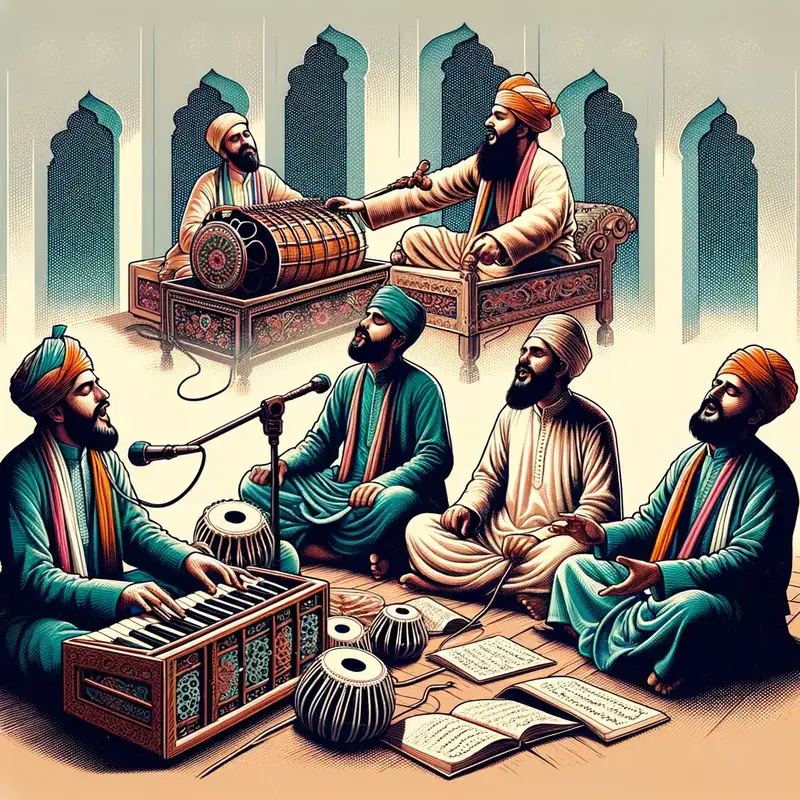Qawwali

Qawwali, a mesmerizing form of devotional music rooted in Sufism, has long held listeners spellbound with its intensity and spiritual fervor.
Table of Contents
Historical Origins
Qawwali traces its origins back nearly 700 years, initially flourishing in the Indian subcontinent. It is strongly linked with Sufism, an Islamic mystical tradition.
The word “Qawwali” is derived from the Arabic word “Qa’ol,” which means “axiom” or “dictum.” This musical genre was developed as a vehicle to convey the teachings of Sufi saints and to inspire deep spiritual reflection.
Key Musical Elements
- Vocals: Qawwali is known for its powerful and emotive vocals. The lead singer, or qawwal, often engages in a passionate and improvisational style, pushing the boundaries of their vocal range.
- Chorus: Accompanying the lead qawwal is a group of supporting singers who repeat key phrases, building a cyclic and hypnotic rhythm.
- Instrumentation: The harmonium, a reed organ, provides the melody, while the tabla and dholak (types of drums) lay down the rhythm. Occasionally, hand clapping by the performers adds to the beat.
- Lyrics: The poetic verses, often in Persian, Urdu, or Punjabi, delve into themes of love, divine devotion, and mystical experiences.
Renowned Qawwals
- Nusrat Fateh Ali Khan: Arguably the most famous qawwal globally, Khan’s voice and innovative style brought Qawwali to international audiences. His collaborations with Western musicians expanded the genre’s horizons.
- Sabri Brothers: Renowned for their traditional style, the Sabri Brothers have left an indelible mark on the world of Qawwali.
- Abida Parveen: One of the rare female qawwals, Parveen’s soulful voice and spiritual depth have made her a standout artist in this predominantly male-dominated genre.
Cultural Significance and Evolution
Over time, Qawwali has not remained static. While its spiritual core remains intact, it has seen fusion with other musical genres, especially in the late 20th century. Elements of rock, electronic, and pop have been woven in, leading to a broader appeal, especially among younger audiences.
Qawwali gatherings, often held at Sufi shrines, are more than just concerts. They are spiritual sessions where performers and audiences connect, transcending the boundaries of the self to touch the divine.